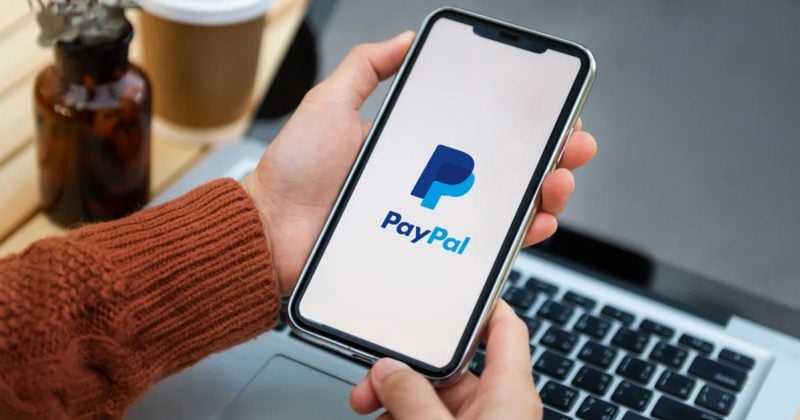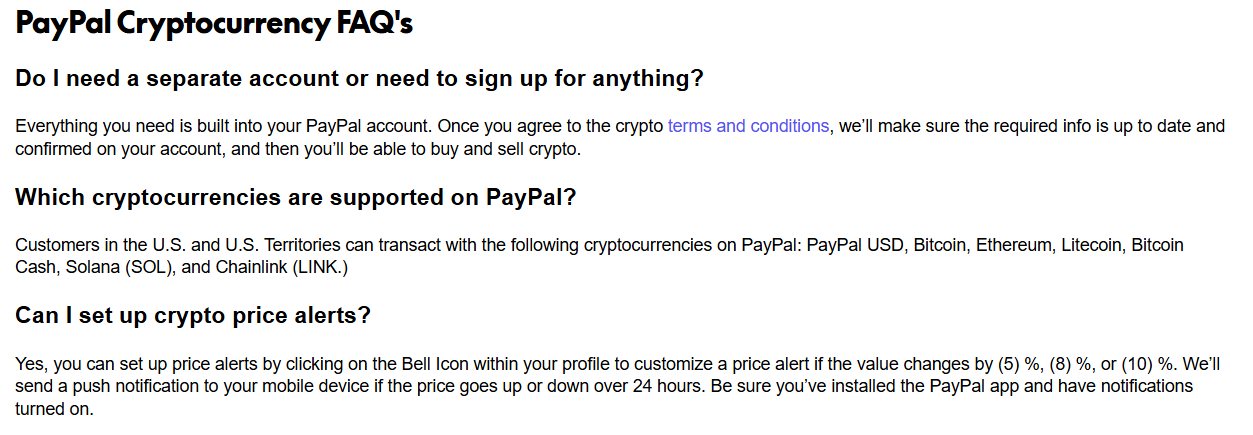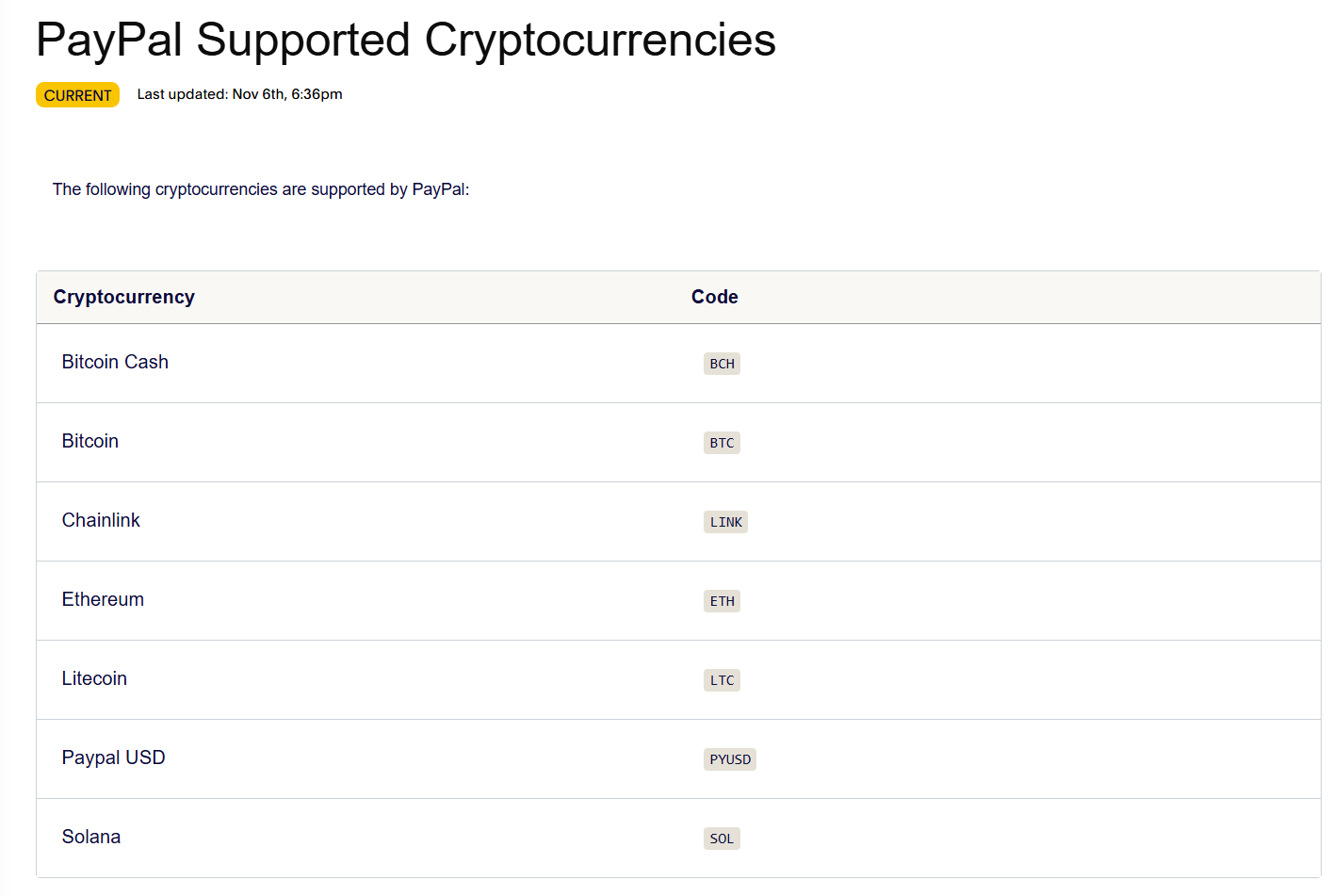
Photo: Nuttapong Punna
PayPal adds SOL and LINK for customers in the US and US territories
The firm has tapped the Solana network for its PYUSD stablecoin beyond Ethereum.
PayPal, one of the largest digital payments platforms, has added Solana (SOL) and Chainlink (LINK) to its supported digital assets for customers in the US and US territories, according to an update on the company’s help center webpage.

This addition expands PayPal’s existing crypto lineup, which already includes PayPal USD (PYUSD), Bitcoin (BTC), Ethereum (ETH), Litecoin (LTC), and Bitcoin Cash (BCH).
PayPal has not yet officially announced when it added the new crypto options, leaving the timeline unclear. The PayPal developer portal, last updated in November 2024, also shows that SOL and LINK are listed as supported crypto assets.

While PayPal in the US and US territories allows users to buy, sell, and hold LINK and SOL alongside other major crypto assets, the ability to send LINK and SOL to external crypto wallets is not confirmed and is likely not yet supported.
Currently, supported coins for external transfers include BTC, ETH, LTC, BCH, and PYUSD to compatible Ethereum ERC-20 or Solana SPL wallets.

PayPal first allowed customers to buy, sell, and hold crypto in 2020. This service was initially available to US users, with plans to expand to other regions and enable crypto payments at millions of merchants.
In late 2024, the company began allowing US merchants to buy, hold, and sell crypto directly from their business accounts, along with the functionality to send and receive tokens on-chain—though this was not available in New York State at launch.
This expansion marks a significant enhancement of PayPal’s crypto offerings to its 36 million merchant accounts and is part of ongoing efforts to increase crypto utility and accessibility for US businesses.
